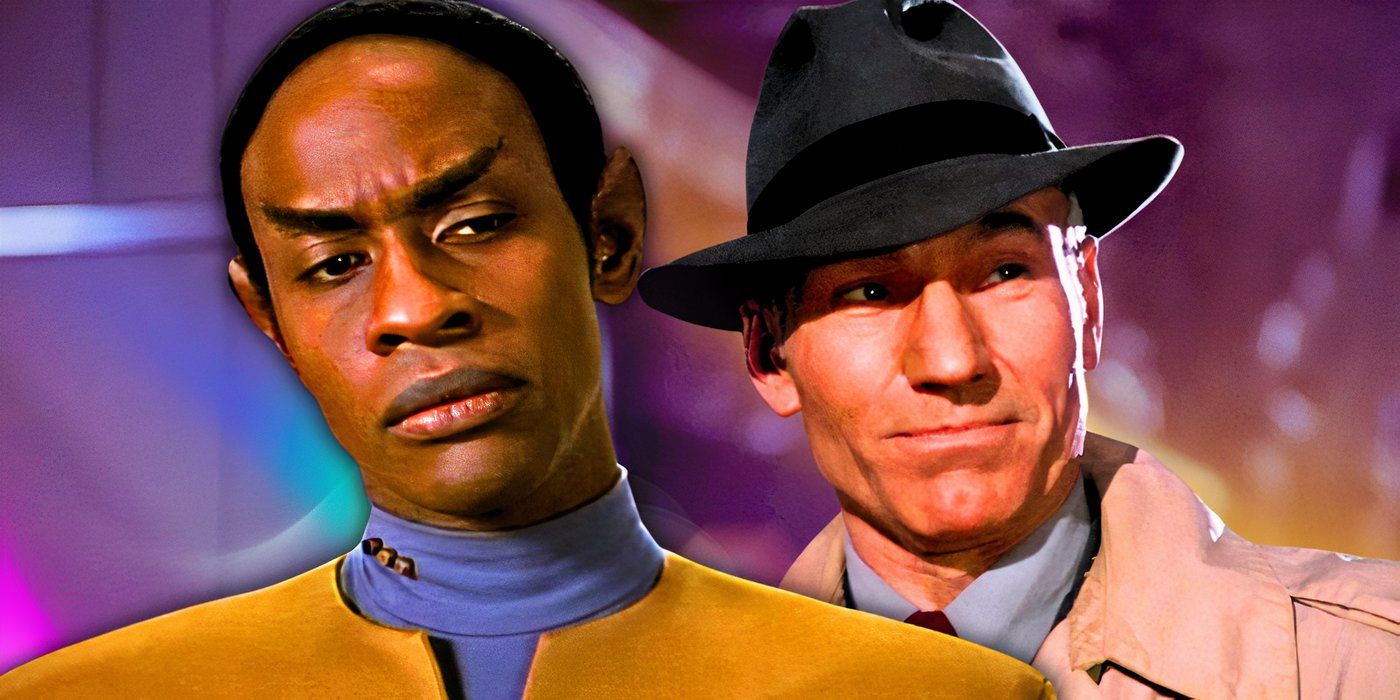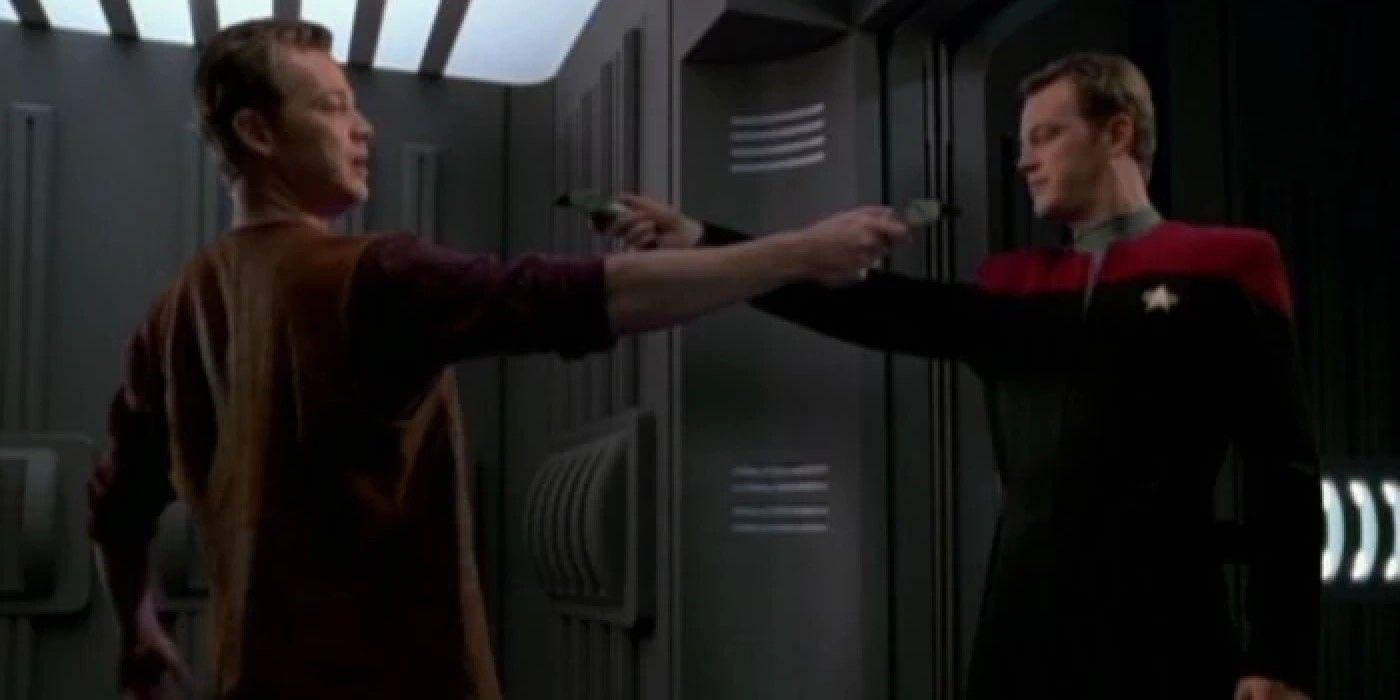Summary
- Voyager season 3 mocked Star Trek's repetitive holodeck programs.
- The season 3 episode "Worst Case Scenario" made fun of typical holodeck tropes while also subverting them.
- Despite "Worst Case Scenario," Voyager continued using uninspired holodeck plots throughout its run.

Star Trek: Voyager season 3 cleverly made fun of a systemic problem the franchise has with holodeck episodes. Like some other Star Trek TV shows, Voyager season 3 was in many ways the beginning of a turning point for the show, where better quality episodes began to appear with more frequency than seasons 1 and 2. Especially toward the end of season 3, when Voyager was moving towards some big shifts at the start of season 4, the season picked up momentum, delivering several great episodes in a row.
One of these episodes, Voyager season 3, episode 25, "Worst Case Scenario," included a holodeck-centric storyline. The episode's plot revolved around a holonovel about a mutiny by Voyager's Maquis crew members written by Tuvok (Tim Russ) as a training exercise. When it was revealed that the program was unfinished, Tuvok and Tom Paris (Robert Duncan McNeill) took it upon themselves to continue it at the crew's request. At the end of the episode, however, Voyager's cast of characters began suggesting ideas for other holonovels Tuvok and Tom could work on, such as “a Western” or “a detective story.”
Voyager’s “Worst Case Scenario” Made Fun Of How Repetitive Star Trek’s Holodeck Programs Are
Voyager pointed out that Star Trek doesn't get creative enough with its holodeck programs
With these two innocuous lines, Voyager cleverly made fun of the limitations that constrain even Star Trek's best holodeck episodes. Mentioning Western and Detective fiction seems to be an allusion to both the Dixon Hill program and the Western holonovel in “A Fistful Of Datas” from Star Trek: TNG. Including subtle references like this made it seem like Voyager was pointing out the irony that Starfleet officers can program anything they want on the holodeck, but instead often choose from a very limited range of ideas for their entertainment.
Instead of branching out, the franchise chose to stick with exactly what was familiar for the rest of TNG and into DS9 and Voyager.
The scope of what the holodeck can create is supposedly limitless, but characters always choose from very basic tropes, or often a literary take-off like Sherlock Holmes or Jane Eyre. This was started in TNG with the introduction of the holodeck and Star Trek's first holodeck-centric episode, "The Big Goodbye." However, instead of branching out, the franchise chose to stick with exactly what was familiar for the rest of TNG and into DS9 and Voyager. Although DS9 occasionally used their holosuites a little differently, Voyager certainly continued the trend in many of its episodes.
How Voyager Subverted Star Trek's Usual Holodeck Tropes In “Worst Case Scenario”
"Worst Case Scenario" was a different kind of holodeck episode

Interestingly, however, "Worst Case Scenario" is a subversion of the usual holodeck tropes. A holonovel about Voyager's crew is already different from the norm, as other shows generally used the holodeck to put characters in fantastical settings. Likewise, a program that directly pits the show's characters against each other was an even more unique idea. It was also realistically something only Voyager could do given that half the crew was former Maquis. Other Starfleet officers would have no reason to mutiny against each other, but Voyager's tenuous Maquis-Starfleet relations were a hallmark of the show's early seasons.
Unfortunately, "Worst Case Scenario" proved to be the exception rather than the rule, and Star Trek: Voyager continued to use its holodeck in the same, uninspired vein for the rest of its run. Additionally, since the series ended in the early 2000s, there have been hardly any holodeck-related episodes in other franchise projects, providing Star Trek with no chance to break the mold. Hopefully, future projects, especially ones set in the far future established by Star Trek: Discovery, can provide opportunities to switch up the usual holodeck formula.



